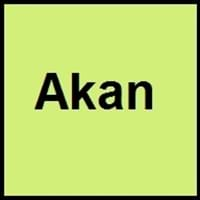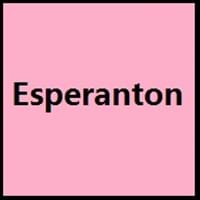Akan and Esperanto
Countries
Ghana, Ivory coast
East Asia, European Union, South America
National Language
Ghana
East Asia, European Union
Second Language
Not spoken in any of the countries
Central Europe, East Asia, Eastern Europe, South America
Speaking Continents
Africa
Asia, Europe, South America
Minority Language
Benin, United States of America
Not spoken in any of the countries
Regulated By
Akan Orthography Committee
Akademio de Esperanto
Interesting Facts
- Ghana has over 100 ethnic groups living, and Akan is one of the largest tribe.
- Akan language came in South America, notably Suriname and Jamaica through slave trade.
- The most widely spoken constructed language in the world is Esperanto.
- Esperanto is an artificial international language.
Similar To
Not Available
Not Available
Derived From
Not Available
Not Available
Alphabets in
Akan-Alphabets.jpg#200
Esperanto-Alphabets.jpg#200
Writing Direction
Left-To-Right, Horizontal
Not Available
Thank You
meda ase
Dankon
How Are You?
wo ho te sɛn?
Kiel vi sanas?
Good Night
maadwo
Bonan nokton
Good Evening
maadwo
Bonan vesperon
Good Afternoon
maaha
Bonan posttagmezon
Good Morning
maakye
Bonan matenon
I Love You
Me doכ wo
Mi amas vin
Excuse Me
mepa wo kyɛw
Pardonu!
Dialect 1
Asante
Not present
Where They Speak
Ghana
Not present
How Many People Speak
Not Available
Dialect 2
Akuapem
Not present
Where They Speak
Ghana
Not present
How Many People Speak
Not Available
Dialect 3
Fante
Not present
Where They Speak
Ghana
Not present
How Many People Speak
Not Available
Speaking Population
Not Available
Second Language Speakers
Not Available
Native Name
Akan
Esperanto
Alternative Names
Not Available
Eo, La Lingvo Internacia
French Name
akan
espéranto
German Name
Akan-Sprache
Esperanto
Pronunciation
Not Available
[espeˈranto]
Ethnicity
Akan people
Not Available
Language Family
Niger-Congo Family
Indo-European Family
Subgroup
Not Available
Not Available
Branch
Not Available
Not Available
Early Forms
No early forms
Proto-Esperanto
Standard Forms
Akan
Esperanto
Language Position
Not Available
Signed Forms
Not Available
Signuno
Scope
Macrolanguage
Individual
ISO 639 6
Not Available
Not Available
Glottocode
akan1251
espe1235
Linguasphere
No data available
51-AAB-da
Language Type
Living
Constructed
Language Linguistic Typology
Not Available
Not Available
Language Morphological Typology
Not Available
Agglutinative
All Akan and Esperanto Dialects
Most languages have dialects where each dialect differ from other dialect with respect to grammar and vocabulary. Here you will get to know all Akan and Esperanto dialects. Various dialects of Akan and Esperanto language differ in their pronunciations and words. Dialects of Akan are spoken in different Akan Speaking Countries whereas Esperanto Dialects are spoken in different Esperanto speaking countries. Also the number of people speaking Akan vs Esperanto Dialects varies from few thousands to many millions. Some of the Akan dialects include: Asante, Akuapem. Also learn about dialects in South American Languages and North American Languages.
Akan and Esperanto Speaking population
Akan and Esperanto speaking population is one of the factors based on which Akan and Esperanto languages can be compared. The total count of Akan and Esperanto Speaking population in percentage is also given. The percentage of people speaking Akan language is 0.17 % whereas the percentage of people speaking Esperanto language is Not Available. When we compare the speaking population of any two languages we get to know which of two languages is more popular. Find more details about how many people speak Akan and Esperanto on Akan vs Esperanto where you will get native speakers, speaking population in percentage and native names.
Akan and Esperanto Language Codes
Akan and Esperanto language codes are used in those applications where using language names are tedious. Akan and Esperanto Language Codes include all the international language codes, glottocodes and linguasphere.





